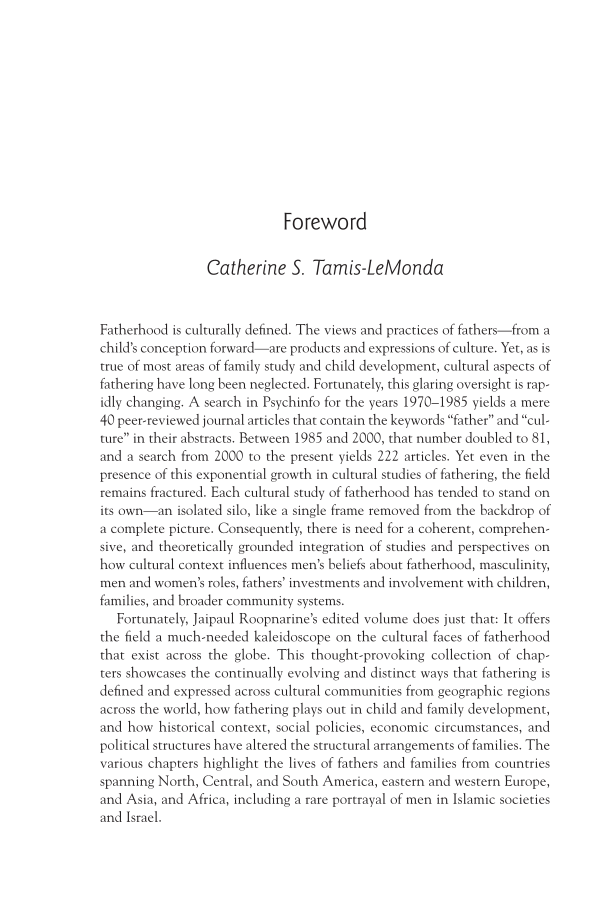Foreword Catherine S. Tamis-LeMonda Fatherhood is culturally defined. The views and practices of fathers—from a child’s conception forward—are products and expressions of culture. Yet, as is true of most areas of family study and child development, cultural aspects of fathering have long been neglected. Fortunately, this glaring oversight is rap- idly changing. A search in Psychinfo for the years 1970–1985 yields a mere 40 peer-reviewed journal articles that contain the keywords “father” and “cul- ture” in their abstracts. Between 1985 and 2000, that number doubled to 81, and a search from 2000 to the present yields 222 articles. Yet even in the presence of this exponential growth in cultural studies of fathering, the field remains fractured. Each cultural study of fatherhood has tended to stand on its own—an isolated silo, like a single frame removed from the backdrop of a complete picture. Consequently, there is need for a coherent, comprehen- sive, and theoretically grounded integration of studies and perspectives on how cultural context influences men’s beliefs about fatherhood, masculinity, men and women’s roles, fathers’ investments and involvement with children, families, and broader community systems. Fortunately, Jaipaul Roopnarine’s edited volume does just that: It offers the field a much-needed kaleidoscope on the cultural faces of fatherhood that exist across the globe. This thought-provoking collection of chap- ters showcases the continually evolving and distinct ways that fathering is defined and expressed across cultural communities from geographic regions across the world, how fathering plays out in child and family development, and how historical context, social policies, economic circumstances, and political structures have altered the structural arrangements of families. The various chapters highlight the lives of fathers and families from countries spanning North, Central, and South America, eastern and western Europe, and Asia, and Africa, including a rare portrayal of men in Islamic societies and Israel.
Document Details My Account Print multiple pages
Print
You have printed 0 times in the last 24 hours.
Your print count will reset on at .
You may print 0 more time(s) before then.
You may print a maximum of 0 pages at a time.


















































































































































































































































































































































































































































































